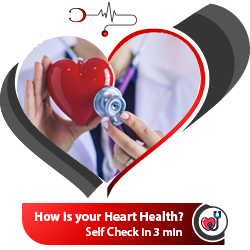World Asthma Day
The World Asthma Day is celebrated on the first Tuesday of May every year. The Global Initiative for Asthma (GINA) leads this initiative of World Asthma Day to improve the awareness about asthma, its precautions, and preventive measures.
Many of us have heard about or seen how dangerous attacks of asthma can get. However, it is also inevitably true that this condition can be managed and to a certain extent prevented just by having awareness about its causes and symptoms of an acute (serious) asthma attack. We will look at the some important aspects of this condition and its prevention in detail.

Causes of Asthma
The asthma causes or factors that trigger asthma can be divided into 2 main categories:
- Allergic/Inflammatory triggers
- Non-allergic/Symptom triggers
Allergic/Inflammatory Risk Factors
As the name suggests, these cause inflammation or swelling up of lungs and the airway passage as a result of any allergic substance. These risk factors include the following:
Pollens
are the most common allergens which cause asthma.
Certain Air Pollutants
with the increasing air pollution, the asthma patients should wear protective air masks when leaving out.
Animals
dander (particles of the animal skin) animals - saliva, oil secretions, urine, and feces - can serve asthma triggers.
Dust Mites
are tiny, creatures that eat our dead skin. They live in the humid environment. They generally live on beddings, carpets, soft toys, etc.
Cockroaches
The cockroach feces are noted to trigger asthma symptoms.
Molds
is a type of fungus which is mostly found in damp or humid. When these molds reproduce, spores are released into the air which triggers asthma.
Viral Infections
like a common cold or flu are when an asthma patient becomes more sensitive and enhances the risk of asthma attacks.
Non-Allergic Risk Factors /Symptom Risk Factors
Generally these risk factors do not cause any inflammation; however, they can stimulate the highly strung airway passages causing severe attacks of asthma. The Non-allergic or symptom risk factors include the following:
Smoke/Smoking/Passive Smoking
cigarette smoking and even passive smoking provokes asthma attacks. So if you are an asthma patient and you smoke, you should quit smoking.
Exercise
can result in the flare up of asthma symptoms, especially in uncontrolled asthma.
Cold Air/Changes in the Weather
can stimulate asthma.
Intense Emotions
some intense emotions and stress can trigger asthma especially if it is not well-controlled.
Harmful Fumes of Chemical and Strong Odours
have to be avoided.
Certain Food Additives like Sulfites
sulfite is a preservative used in the production of some foods and drinks. Sulfites in certain foods are known to stimulate asthma.
Symptoms of Asthma
The common signs and symptoms of asthma are:
- Coughing, especially at night
- Wheezing: is a whistling sound that can be made while breathing
- Shortness of breath
- Chest tightness, pain, or pressure
Management and Treatment of Asthma
Asthma treatment and usually involves the following:
- Awareness of all the causes that trigger asthma attacks.
- Taking necessary steps to avoid them.
- Keeping a check on your breathing to ensure your daily asthma medications are able to control the asthma symptoms.
- In a case of an acute asthma attack, you can get a quick relief from the albuterol inhaler.
Asthma Prevention
We cannot prevent asthma; however, we can definitely manage or control it. Here are some self-help tips for asthma prevention.
Vaccination
there is no vaccine for asthma; however you can vaccinate yourself for the conditions that trigger asthma, like the flu, pneumonia, etc.
Take Prescribed Medications Only
If you notice that in spite of the given medicines there is no improvement in your condition, you should immediately consult your physician or at least take a second opinion. In the case, if you are using the inhaler and you feel there should be a dose correction you should consult a proper physician.
Regular Monitoring of the Condition
to ensure that the medications are working well. You should also take up a master health checkup regularly. This will decrease the risk of a severe attack. The check-up will not only saves you from critical illnesses but also saves you from the physical, mental and financial trauma due to the disease.









